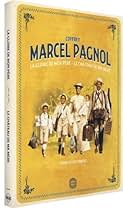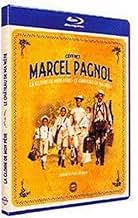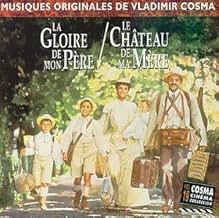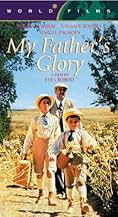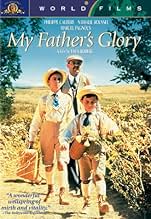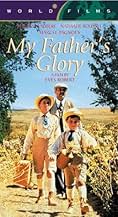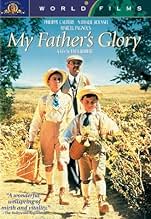A la fin du XIXème siècle, le petit Marcel vit avec ses parents dans la campagne provençale. Pendant ses vacances, Marcel rencontre Lili, un garçon du coin qui connaît tous les secrets des c... Tout lireA la fin du XIXème siècle, le petit Marcel vit avec ses parents dans la campagne provençale. Pendant ses vacances, Marcel rencontre Lili, un garçon du coin qui connaît tous les secrets des collines, et les deux deviennent rapidement amis.A la fin du XIXème siècle, le petit Marcel vit avec ses parents dans la campagne provençale. Pendant ses vacances, Marcel rencontre Lili, un garçon du coin qui connaît tous les secrets des collines, et les deux deviennent rapidement amis.
- Réalisation
- Scénario
- Casting principal
- Récompenses
- 2 victoires et 5 nominations au total
Avis à la une
As in many French films, this offers very little action and not much that is noteworthy but is filled with interesting characters and excellent storytelling. The French still offer that great storytelling, something that has slowly faded among filmmakers in other countries.
This story is based on the memoirs of Marcel Pagnol, a very Liberal educator and atheist. His views are probably the main reason critics all loved this movie. They could identify.
Despite the father's shortcomings, there is a nice appeal here as all the characters are interesting to varying degrees. I love the way they all express themselves, certainly different than we do here in North America. As with most of these French stories, there is very little profanity, too.
The father is a school teacher, an atheist, and a republican. But he is a loving husband and a great father to his children. The mother is shy and affectionate and is sensitive the needs of her husband and children. So what makes this film such an enchanting experience? Since I am not a writer, I cannot really put into words the way I felt after watching this film. I know it left a smile in my heart...it also made me nostalgic for it reminded me of my own childhood. I wanted it to go on long after the movie ended. Watch it and you will know what I mean. It will take you back to the magical moments of growing up.
It is a loving, romanticized recreation of Pagnol's childhood trips to the south of France.
Director Yves Robert ices every scene with sweet affection and a seemingly effortless attention to detail.
There are so many moving, heart-tugging scenes.
Describing them all would spoil the confection.
I'll mention one. Young Marcel accompanies his father, Joseph, a school teacher, to school one day. Not believing that Marcel can read already, Joseph writes a simple declaration of his love for Marcel on the blackboard. Marcel then surprises his father by reading out loud what his father wrote. It is such a touching, affecting scene.
MY FATHER'S GLORY is bursting to the seams with such magic.
Vladimir Cosma's score perfectly captures the period and tone of Pagnol's memories.
Simply exquisite.
Le saviez-vous
- Anecdotes'La Gloire de mon père', published in France in 1957, is the first volume of four autobiographical novels by Marcel Pagnol. The second volume, 'Le château de ma mere', was published in 1958. In the novels, Marcel's meeting Lili takes place in volume two, as does Marcel's decision to stay at Provence as a hermit. The two novels were translated into English and published by Doubleday (in the U.S) as a single book in 1960 under the title 'The Days Were Too Short', This translation was reprinted by North Point Press as a single book titled 'My Father's Glory / and / My Mother's Castle' in 1986.
- GaffesOn the family's holiday, each time that it is raining the sky is bright and without a cloud (except the scene with the storm).
- Citations
Augustine: You need your gun to go shopping?
Joseph Pagnol: You never know.
Meilleurs choix
- How long is My Father's Glory?Alimenté par Alexa
Détails
Box-office
- Montant brut aux États-Unis et au Canada
- 1 730 856 $US
- Montant brut mondial
- 1 730 856 $US
- Durée
- 1h 45min(105 min)
- Couleur
- Rapport de forme
- 1.85 : 1

![Regarder Bande-annonce [OV]](https://m.media-amazon.com/images/M/MV5BNjNlYzQ0NGQtODdlNS00YzRmLTlhYzQtZDdiOTNiZDZlYWYzXkEyXkFqcGdeQXRyYW5zY29kZS13b3JrZmxvdw@@._V1_QL75_UX500_CR0)

